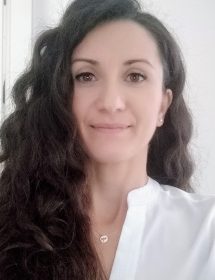RESEARCH FELLOW
 maddalenagrieco(AT)cnr.it
maddalenagrieco(AT)cnr.it

publications: Orcid
personal details and research activity: People
Curriculum Vitae
Throughout my career, I have focused on advanced biochemical and nutraceutical approaches, investigating the biological impact of both natural compounds and environmental pollutants on human health. During my PhD, I examined the endocannabinoid system in Alzheimer’s disease, specifically identifying the role of anandamide (AEA) in microglial polarization and its potential in mitigating cellular toxicity. In collaboration with Prof. Marcel Leist at the University of Konstanz (Germany), I studied neuroglial interactions that support neuronal resilience against proteotoxic stress, emphasizing the role of the endocannabinoid system in these protective mechanisms. Additionally, my research investigated the neuroprotective effects of blueberry-derived polyphenols in counteracting LPS-induced microglial activation, highlighting their potential as nutraceutical agents in the control of neuroinflammation.
Special attention was dedicated to the study of the role of the environmental pollutant β-hexachlorocyclohexane (β-HCH) as an epigenetic modulator, uncovering its contributions to neuroinflammation and cognitive dysfunction. My work also characterized the signaling and metabolic pathways influenced by β-HCH in prostate cancer, examining its tumorigenic effects and potential as a model for pollutant-induced carcinogenesis.
At the CNR Nanotec Institute I had the opportunity to approach nanotechnology and biomaterials developing innovative in vitro models, studying the effects of electro/mechanical stress on glioblastoma cells and creating hyaluronic acid-based hydrogels to support 3D cultures. I also utilized organ-on-chip systems to test neuroblastoma cells under varied electro/mechanical conditions, advancing understanding of cellular responses in controlled microenvironments.
This work underscores a holistic approach, integrating nutraceutical research and pollutant toxicity studies to address complex biomedical challenges.

